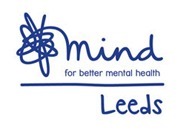Book Club November 25th
I know what you did last war time
Half Of A Yellow Sun – Chimamanda Ngozi Adichie.
Yes we’re still here, and look out our range and lack of fear in selecting books. This time, our longest at 448 pages, and our writer is from Nigeria. Despite the very quaint sounding title, this novel is not: deep within, we realise that Half of Yellow Sun is a heavily political symbol, and not a sweet metaphor. Adultery, rape, beheadings, political corruption all occur in the novel.
It’s a little known outside of the western consciousness and arguably for Adichie, who did not live through this, it is a reconstructed narrative from obvious non-fiction sources and, as much as she admits (in the back of the movie adaptation edition there is a Q&A), her fathers and ancestors accounts. As New York Times review notes coyly though, that this novel about an imploding nation riven by religious strife and bloody wrangling over military, the civil service and oil, the meddling of the white man is not a novel about Iraq, it’s a novel about war in 1960’s Nigeria. Rob Nixon in the NY Times also notes how that this is a war largely forgetten outside of Nigeria, unless you have studied African history (like one of our readers has). This is symptomatic of the global novel: a writer born in another country studying in America, writing contemporary novels that come more across as reflections of global current events than they are the historic events they purport to depict. It arouses some deep-seated ontological questions of fiction.
But Adichie is in this for the story. Ugwu, the servant, a sweet, slightly too sweet character undergoes the greatest development. Olanna and Kaniene, two sisters, is an interesting arc to examine the affects of love and war. Some of the details are hyperbolic, and cinematic to an extent (the beheading remains clear in the mind), accentuated by Adichie’s omnipresent narration (and Adichie’s manipulation of time-scales jumping from the past to the future, back to the past again; well technically starts off as the present, but then it becomes the present when she jumps forward, you the drift). No blame is attributed, but a lot of attacks are aimed at the white characters Richard Churchill (ho-ho) and his wife Susan. Richard is spared some slight sympathy but Susan is one of the most hollow characters ever read, much to comical affect. Britain’s colonial exploits are referred to often, and indeed, the British Empire has a lot to answer for. On the cover of my copy, one of those hideous re-releases made for when a film tie in is being produced there was the caption ‘War divides. Love unites’. This piece of shoddy marketing could not have been any different; throughout we constantly see the characters united by a ideological ends rather than love. Love is too personal, too individual, too domestic to unite, only the grand narratives of war can do this. Indeed the sweetness of a political symbol comes into light; how benevolent really is the poppy?
The power and lack of power of fiction for me was prevalent in this novel, but this novel I believed caused me to frame a particular event in my life differently, and cause me to alter it, irrevocably. Once this happened, it became difficult to get back into the book. Ambiguous terms, certainly but sometimes it takes 150 pages of a book to make you look at your life differently.
Next Time…
More war, this time we look at WWI in a roundabout way with Mathew Hollis’ Now All The Roads Lead To France, a look at the friendship of the poets Edward Thomas (Adlestrop) and Robert Frost (The Road Not Taken). Indeed it is the roads taken and not taken that Hollis examines in this bravado account (i’ve read it already, it is brilliant). Our first non-fiction book at Inkwell, but still resolutely focused on the art.

